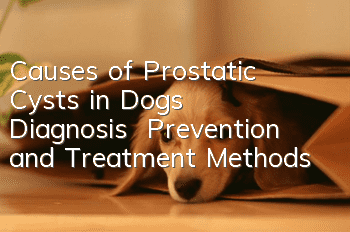How to choose a healthy Alaskan Malamute

Buying a pet dog is something that new owners like to do, but buying an unhealthy Alaskan Malamute will bring great discomfort to people. Let me teach you how to buy a healthy pet dog.
The four normal needs. The four major needs for puppy growth are appetite, play, sleep, and excretion. Puppies' changed environment, bumpy roads or changes in food may reduce their appetite, but severe dehydration, gastroenteritis, or body pain will also cause them to lose their appetite. In this case, you should maintain a wait-and-see attitude and observe for a few more days.
No runny nose. Dogs can have a runny nose if they catch a cold, have an upper respiratory tract infection, or are born with a sensitive nose. If infected by bacteria, the nasal mucus will become opaque and appear milky white, yellow or green in consistency. In addition, if food spurts out of the nostrils, it means that the dog has a problem with its swallowing mechanism.
No cough. Dogs catching a cold, having turbid air, having a sensitive throat, or suffering from tracheitis or bronchitis can cause puppies to cough. Severe coughing and excessive phlegm can cause a puppy to have a poor appetite.
Moderate stature. Body fatness and thinness are important indicators of the healthy nutritional status of puppies. Physical weight loss can lead to lack of physical strength, reduced immunity, and affected health conditions. Note that judging fat or thin depends on the body except the coat. In addition, it can also be measured by the thickness of the muscles on the back of the abdomen.
Eyes are bright. The cornea of a healthy eye should be transparent, allowing the color of the pigment layer of the eye to be seen clearly. Blue discoloration of the cornea may be due to hepatitis virus infection. Redness or whitening of the cornea may be caused by foreign matter or trauma. Infection with canine distemper or other eye pathogens can cause the eyes to secrete abnormal substances or develop pus.
Observe the hygiene situation. The hygiene of the puppy's body can reflect the care of the previous owner. If the puppy's body is dirty, its chance of contracting diseases will be greatly increased. Because most infectious bacteria and parasites are spread through urine and feces.
No pain. If the puppy often bends its back and groans without eating, it is necessary to check whether it is abdominal pain, which is a common symptom of gastroenteritis. If the dog is unwilling to walk, or it is painful when walking, it is necessary to suspect whether there is trauma to the limb bones.
Stool is normal. Changes in the environment and diet of puppies, enteritis, or parasites can cause abnormal stools, such as loose stools or transparent substances, so you should pay attention to them. Normal stool should be in the shape of clay strips.
Observe the blood color. To determine whether a puppy is anemic or malnourished, open its lips and observe whether the gums and flesh are bright red in color. If there are problems with hematopoietic function or parasites, the blood will appear pale.
Skin health. Observe whether the dog's skin is healthy. Any pus cells or dander will make the dog feel itchy. Scratching the skin will affect its appearance and health. Should be treated with caution.
- The dog's vaccine has no effect after injection. What is the reason why the dog's vaccine immunity fails?
- What should I do if my dog is infected with intestinal parasites?
- How to treat canine distemper in Chow Chow
- Small grapes, big harm, must not be given to dogs!
- What should I do if my Bichon Frize has a cold? What treatments are available?
- Dogs need protein
- Why do dogs keep scratching their faces?
- What should Alaskan dogs eat? What can't you eat?
- Dog dining etiquette training
- Can I bring pets on the high-speed rail? What are the precautions?



